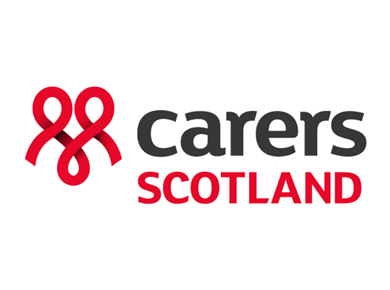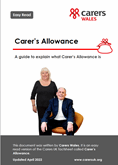How to organise looking for help
Managing your finances during the cost-of-living crisis can be challenging. There is a range of national and UK-wide help available – some are for all households, and some are for people on low incomes or who receive certain benefits or have certain disabilities for example. There are also services that may be of use to you available at the local level. Because the range of support will depend on your unique situation, you may need to access a broad range of resources and support.
In this hub, we will endeavour to give you as much information as possible so you can find resources you may not have been aware of – and bring together multiple elements to support you to maximise your finances. This could include getting a benefits check to make sure you are getting everything you are entitled to, grants and help with costs for things like white goods or other services, ways to manage debt and energy bill pressures, and ways to find the best consumer deals or how to rebuild credit.
This may take time and patience. It can be overwhelming and so we have attempted to provide links to support services – including our Listening Support Service to try to help you manage emotionally as well as practically.
Benefits and Welsh / UK Government Support
Click the menus below to find out more about benefits and Welsh / UK Government support.
If you are on a low income, whether in work or out of work, you may be entitled to benefits. You may be entitled to Carers Allowance, or to assistance if you are ill or disabled and unable to work. The person you care for may also be able to claim benefits. We have a range of factsheets available to help you understand benefits like Carers Allowance, Personal Independence Payment, Disability Living Allowance and Attendance Allowance.
Please click this link to read and download all factsheets.
Universal Credit
If you are not working or on a low income, you may be able to claim Universal Credit. Universal Credit has been gradually phased in to replace benefits such as Working Tax Credit. If you are working and on a low income, you can no longer make a new claim for Working Tax Credit unless you already receive Child Tax Credit. Please click here for more details.
You may be entitled to a Carers Element if you claim Universal Credit. However, there are rules which mean it may affect the benefits of the person you care for. Because there are lots of rules that cover different situations, it would be helpful for you to do benefits check with an online calculator.
Turn2Us
Turn2Us is a charity that offers advice and support for people struggling with their finances. They have a free and confidential benefits calculator on their website:
They also have a function for you to search for grants in your local area by entering your postcode. Unfortunately, the search function only accepts searching via your postcode and not, for example, nationally. However, it could still be useful to use the search tool to see if there are any grants which are local to you that may be of help:
You can also use an advice search function which allows you see any local services in your area which can offer advice and support to you on finances or other support for example with job searching, advice lines, groups for carers and other local, targeted support:
On 6 June, Welsh Government also announced further funding for carers in Wales via the Carers Support Fund. This was set up in response to the pandemic in October 2022 to help carers with the financial challenges of the COVID-19 pandemic.
It has now been extended until 2025. Carers, who provide care for an adult or disabled child, will be able to apply for grants of up to £300 to pay for food, household items and electronic items.
Support services, such as counselling, financial advice, well-being and peer support will also be available. Please click this link for more information.
The support fund is administered via Carers Trust Wales – and they will announce details of how to apply on their website. Please click here to visit the Carers Trust Wales website.
The Welsh Government offer a Discretionary Assistance Fund for people living in Wales who are suffering extreme financial hardship. The fund is made up of two types of grants:
Emergency Assistance Payment (EAP)
A grant to help pay for essential costs, such as food, gas, electricity, clothing or emergency travel if you:
- are experiencing extreme financial hardship
- have lost your job
- have applied for benefits and are waiting for your first payment
- You cannot use it to pay for ongoing bills that you cannot afford to pay.
Individual Assistance Payment (IAP)
A grant to help you or someone you care for live independently in their home or a property that you or they are moving into.
Use the grant to pay for:
- a fridge, cooker or washing machine and other ‘white goods’
- home furniture such as beds, sofas and chairs
To find out more, including eligibility criteria and how to apply please click this link.
Council Tax Reduction Scheme
If you are on a low income or have other eligibility you could be entitled to a reduction in your council tax. This may apply if you are a carer subject to certain eligibility criteria. You may be entitled to different levels of reduction, from partial to full, depending on your individual circumstances.
You may need to contact your local council directly for a council tax reduction. To find out more, including how to contact your local council, please click the link below.
https://gov.wales/council-tax-discounts-and-reduction
Discretionary Housing Payments
You may be eligible for support with the cost of rent - this applies to both social and private sector tenants.
These can provide extra money when your local authority decides that you need extra help to meet your housing costs on top of what benefit support you already receive through the DWP.
To get a Discretionary Housing Payment, you will need to either already be receiving the old scheme Housing Benefit or the housing cost contribution element through Universal Credit.
You need to contact your local council directly. You can find more information and a link to finding your local council by clicking this link.
Latest updates

Carers UK responds to DWP announcement of aim to tackle all Carer’s Allowance overpayment alerts
Carers UK responds to Department of Work and Pensions (DWP) announcement that it will aim to tackle all Carer's Allowance…

Carer Poverty Coalition responds to Government's welfare reform Green Paper
It's extremely worrying that some measures within the Green Paper on Welfare Reform changing disability and health benefits will actively…

Carers UK celebrates Investing in Volunteers award
Carers UK is delighted to have achieved the UK-wide quality mark for organisations involving volunteers during the charity’s 60th anniversary…

New rise in Carer Support Payment in Scotland earnings limit will increase financial security for carers on a low income
Carers Scotland press release on the increase in earnings threshold for Carer Support Payment in 2025.
Got a question about caring?
Every day we hear from people who need help with looking after a friend or family member
Become a member for free
Joining Carers UK is free and takes just a few minutes.


